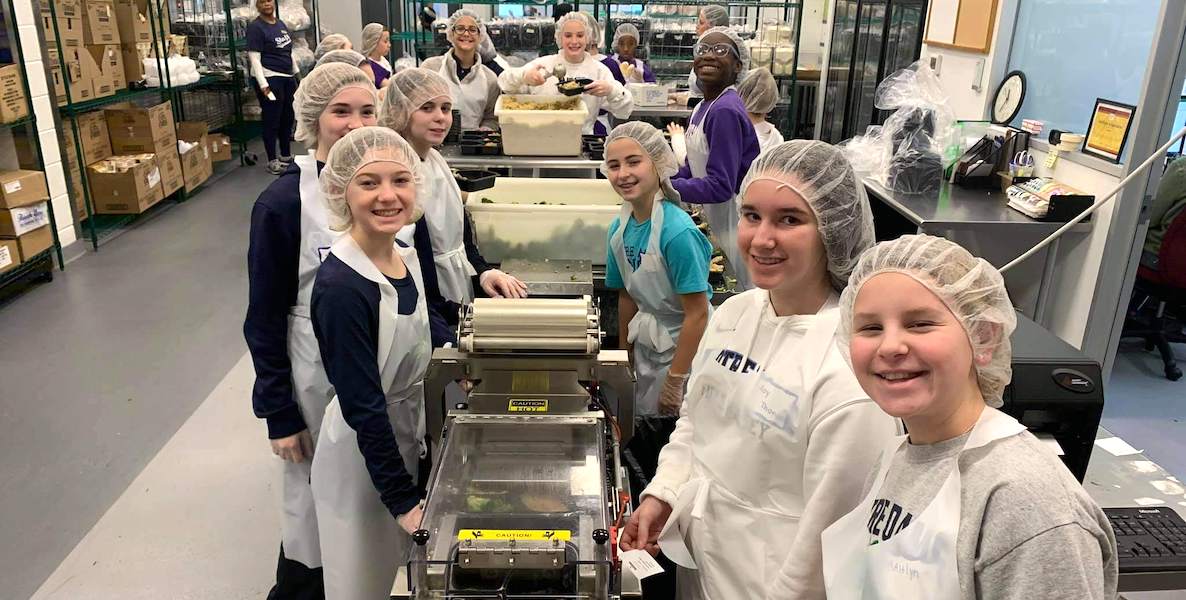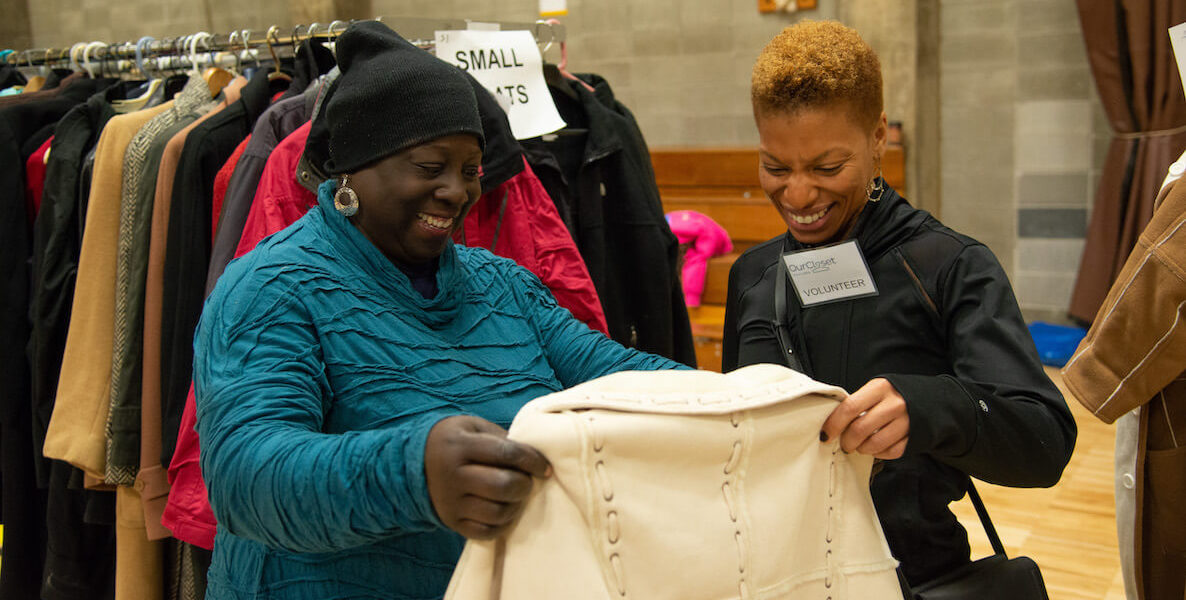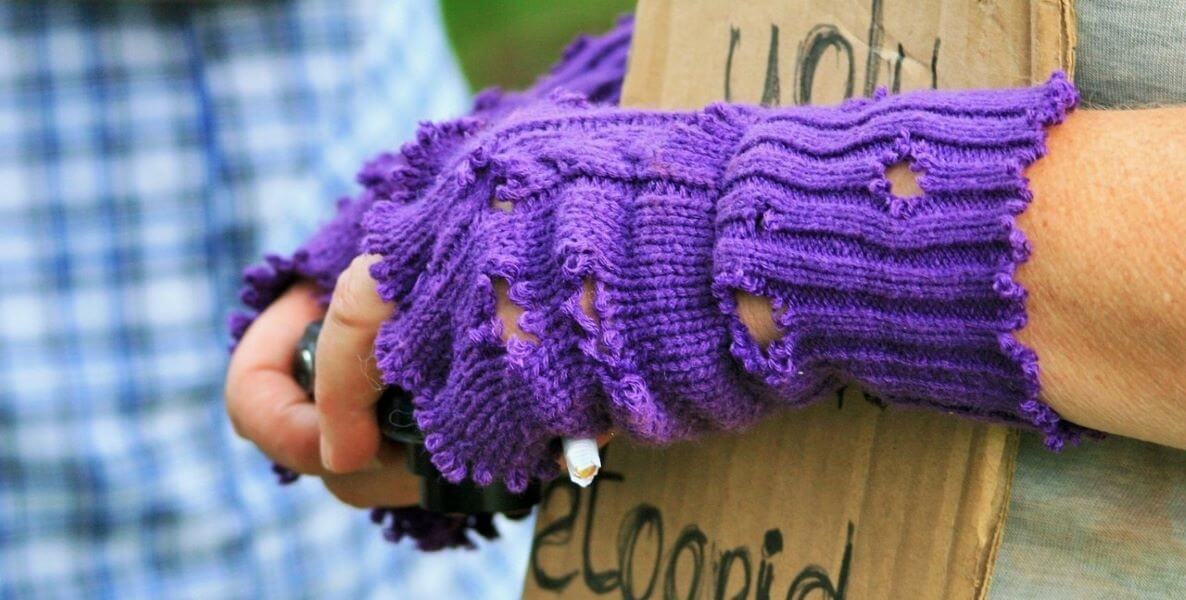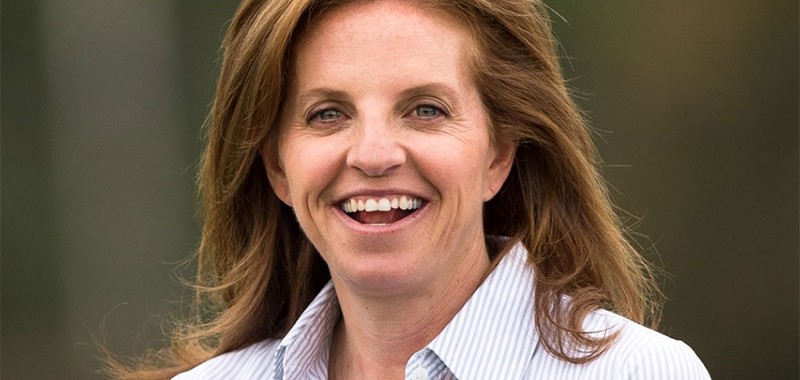Perhaps Jill Aschkenasy’s dedication can best be encapsulated in her bus rides along Chestnut Street.
Starting in 2011, the mother of four and former assistant district attorney in Manhattan would often hang out at the bus stop at 56th and Chestnut streets, then get on the bus and hop on and off to distribute flyers at every daycare and community center, food pantry and neighborhood hub along the route.
She’d been eager to start an organization that would meet a demand in Philadelphia, and as she did her research over the course of nearly two years, a similar refrain kept cropping up: In times of need—be it homelessness or unemployment, floods or fires—people needed, among other things, clothing.
And so Aschkenasy’s rides along Chestnut were marketing missions of sorts: She wanted to spread the word about a plan she’d hatched called “Terrific Tuesdays,” during which she and other volunteers would welcome those in need to (the now-defunct) LIFT Philadelphia’s West Philly center to distribute free clothing she’d rounded up from friends and family. She called the program Our Closet.
A key differentiator between Aschkenasy’s vision and existing services around the city: There would be zero barriers to entry. No paperwork, referral or ID needed. “You wouldn’t even have to share your name,” Aschkenasy says.
And the setting would simulate a typical retail environment in every way, from thoughtfully merchandised racks and tables, to quality shopping bags. Standards for donations would be high: All items would have to be in excellent condition.
Shoppers would be entitled to any five items they’d like, and volunteers would be there to help them find clothing that didn’t just meet their need for clothing, but made them feel good, confident.
“The idea from the very beginning was that clothing distribution should not be complicated. So if we can distribute free clothing to people in a way that is dignified and give them ownership in the process and help them to feel good about receiving this clothing, then that is just taking one of the stressors in their life off the table,” says Aschkenasy.
Word-of-mouth spread, and within months of her early flier distributions, crowds of people began lining up at six in the morning to receive the free clothing Aschkenasy and her team could provide.
For two years Our Closet functioned at LIFT; as it evolved, it expanded to other locations as a completely volunteer-driven nonprofit.
A key differentiator between Aschkenasy’s vision and existing services around the city: There would be zero barriers to entry. No paperwork, referral, or ID needed. “You wouldn’t even have to share your name,” Aschkenasy says.
Demand for Our Closet’s services continued to grow, and Aschkenasy recognized that to scale further, she could either ramp up fundraising efforts or find a like-minded partner.
She pursued the latter, merging with Jewish Family and Children’s Services (JFCS), a Philadelphia-based nonprofit whose support has allowed Aschkenasy to build a team of two full-time and three part-time staff members, with the administrative infrastructure of JFCS behind them.
Drop off clothes around PhillyDo Something
They also have five dedicated donation drop-off spots, and a warehouse in Delaware County where the landlord gives them space at no charge. Often the pop-ups provide wrap-around services, from meditation workshops to sessions on female empowerment.
In 2019 alone, Our Closet held 85 pop-ups, distributing 33,451 items of clothing, shoes and accessories via 6,208 shopping experiences and 575 crisis and reentry packages with the help of 2,524 volunteers.
“We’re not doing the heavy lifting, but we certainly can help in one small way with somebody’s path to a new life,” Aschkenasy says.
Currently, 90 percent of donations come from the community, and the remaining 10 percent come through strategic partnerships with fashion retailers.
Donations that do not meet Our Closet’s high standards go to one of two other partners: Green Drop, or Threads for Life, whose Philly-based founder travels several times each year to Nigeria to distribute clothing to those living in deep poverty. “We’re thrilled that we get to help people out internationally, as well,” says Melanie London, Our Closet’s program director.
Our Closet is in need of volunteersDonate time
Funding for Our Closet comes through grants, donations, the partnership with JFCS, and through ticket sales for and sponsorship opportunities at the organization’s annual gala, Fashion For all, a fashion show held at and completely underwritten by Neiman Marcus in King of Prussia.
Aschkenasy says that the organization is always looking for volunteers to sort clothing and staff the pop-ups. “It’s pretty certain that if you are interested in volunteering, we can find something that works for you even if it’s two to three hours.”
In 2019 alone, Our Closet held 85 pop-ups, distributing 33,451 items of clothing, shoes and accessories via 6,208 shopping experiences and 575 crisis and reentry packages with the help of 2,524 volunteers.
Social and professional groups, from women celebrating a 50th birthday to construction workers and corporate colleagues, often volunteer together.
Three times a year Our Closet also hosts a Lunch, Learn, and Sort Series, where anyone is welcome to JFCS’s outpost in Bala Cynwyd to sort clothing for 75 minutes, enjoy a free lunch. and hear from a speaker. This month, on February 25, The Citizen’s Executive Editor and Co-Executive Director Roxanne Patel Shepelavy will be speaking about The Citizen’s mission to revive citizenship in Philly.
Go to the next Lunch, Learn and SortOur Closet Events
And then there are the families, so many of whom have two parents working multiple jobs, trying to stay above water when the cost of living is so high and minimum wage is so low.
“They’re in this spot where the idea of getting the basic need of clothing met through an Our Closet shopping experience is such an advantage to them,” London says. “If they don’t have to worry about clothing, they can make sure that they can make rent that month or that they have enough food. It just takes them to a certain spot where they don’t have to worry.”
The Citizen is one of 20 news organizations producing Broke in Philly, a collaborative reporting project on solutions to poverty and the city’s push towards economic justice. Follow the project on Twitter @BrokeInPhilly.
Photo courtesy Our Closet






